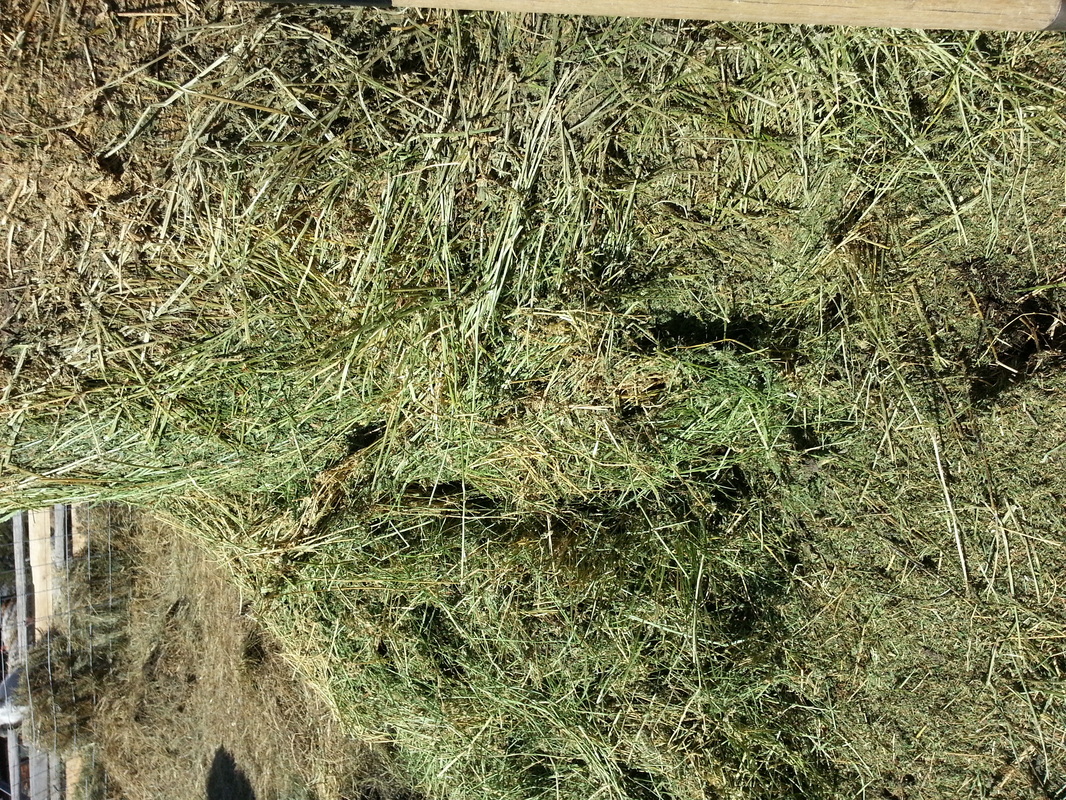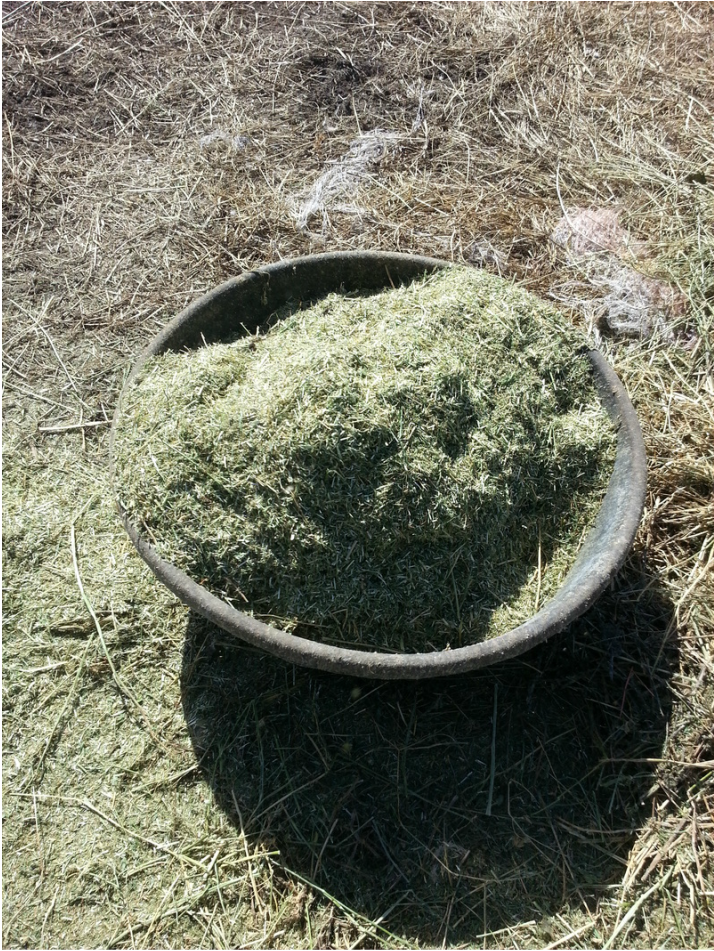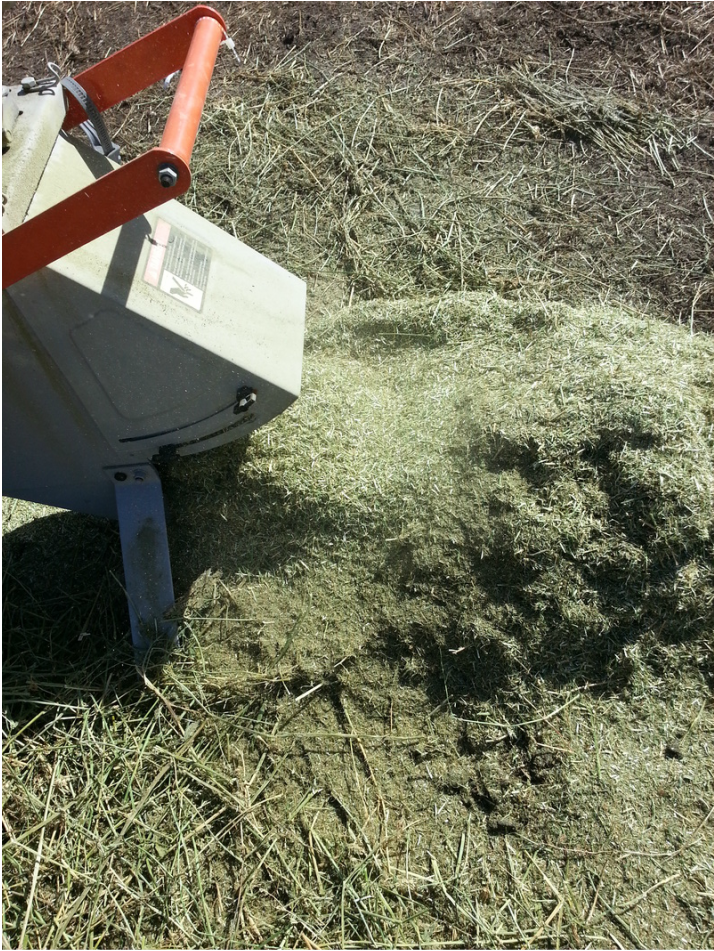So, I did some thinking. I do not have the cash, space or manpower to buy a or warrant buying a huge bale buster, which is a machine that shreds the hay. I put an ad on our local infomall, a buy and sell type of online service, looking for a chipper shredder, hoping that it would do the job of shredding the alfalfa for me, thereby doing away with the waste. It does, but it takes a long time to feed the alfalfa to the machine. I will have to put aside half days at a time and do enough for several days. In four hours I could probably shred enough feed for four days.
After shredding, I collected the alfalfa, which was a finely ground mix, too fine to feed safely to the sheep. They are greedy critters when they like something and tend to breathe in while grabbing the food. If they inhale the alfalfa it would be harmful to them. So, I added water enough to moisten the alfalfa and let it sit for an hour. That is when I began to think about fermenting it too. Fermented foods are so good for us, humans and sheep. I found some information on fermenting grains with added shredded alfalfa. To one gallon of water, 2 tablespoons of real cider vinegar were added to begin the probiotic ferment. The alfalfa woud be turned twice daily for 3 days and fed on the fourth. If a new batch of food was started every day and kept unti lthe fourth day, then there would be a perpetual supply of fermented alfalfa to feed the sheep. They do not need as much since they are not wasting any.
Then I fed it to them. Boy oh boy! Those greedy girls gobbled and guzzled. They pushed and shoved. They bunted and batted and battled for the best munching spots. They cannot soil the alfalfa in the feeders, which are the aluminum cages from 1000 litre liquid totes with the plastic containers removed. They ate every last bit. So, finally, I found a winner.
The cons are that with the shreeder I have, which is a very good one, the Brushmaster $1299 one from Home Depot (http://www.homedepot.ca/product/11-hp-commercial-duty-chipper-shredder/935066), it still took over an hour to shred enough for one day's feeding. So, it is terribly time consuming. It is messy too. The day was windy and dry alfalfa flies everywhere and feels sharp against the skin. It requires moisture because as it is , it is too powdery to feed to the sheep and they would inhale the dusty fibres. So water was added.
The pros are great though. They eat it all and waste nothing!
Now, to try the fermentation part of it. Onward we go on The Fat Ewe Farm!




 RSS Feed
RSS Feed